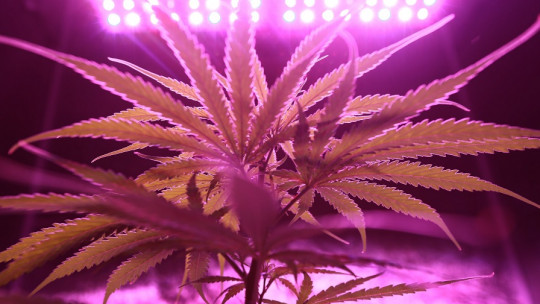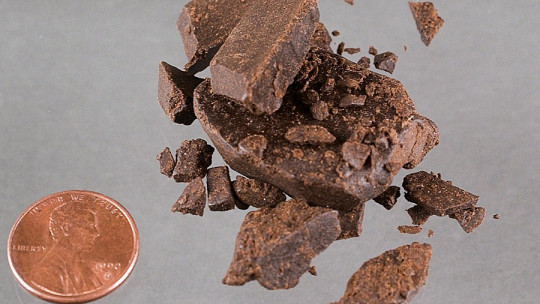Cannabis is the most widely consumed illegal drug internationally. This is largely because many people consider it a “soft drug” with very few health risks.
However, those same people forget that Marijuana or hashish are substances that can cause addiction and a multitude of problems
Not all people who use marijuana will experience problems or some type of dependence on cannabis. This will depend on many factors, such as the person’s genetics, their frequency and consumption habits, the quantities and varieties of the plant, their emotional state and life context…
Not all people who smoke joints suffer from problems, but we cannot deny that some people develop serious problems and need the support of professionals.
Psychological treatment for cannabis addiction
In this article I am going to talk to you about the main pillars of a psychological treatment for cannabis addiction
1. Motivation to quit marijuana
Any attempt at psychological treatment is doomed to failure if the person is not motivated to achieve results.
Unfortunately, it is very common in the field of addictions to encounter people who do not want to change, or do not feel prepared to do so. In most cases, it is family members or the couple who contact professionals to ask for advice, to know what to do.
Many people find themselves with the frustration and helplessness of knowing that a loved one (their child, their sister, their husband) is smoking too many joints, that it is negatively affecting their lives, and that they can no longer continue living that way.
Unfortunately, it is a common reality: The main characteristic of an addiction is that the person is not aware of the problem , and in this case you do not feel the desire to give up marijuana or undergo psychological treatment. Many times they go to therapy to stop smoking completely forced by their family members, or because their partners have threatened to separate.
If this is the case, a psychologist specialized in marijuana addiction will help the person realize the relationship between excessive marijuana use and personal problems and to set short and long term goals.
Here are just some of the consequences and cerebral sequelae of excessive marijuana consumption:
● Concentration problems ● Memory loss ● Irritability and anger attacks ● Anxiety ● Sleep problems ● Paranoia and panic attacks ● Psychosis and symptoms of schizophrenia
2. Analyze joint consumption habits
The psychologist who is an expert in the treatment of cannabis addiction will use a strategic approach. To help anyone overcome an addiction, it is essential map the person’s behaviors and habits
How much do you smoke? How often do you smoke? How many joints a week? How many joints a day? In what situations? How do you feel before smoking? And then? What are the different behavioral reinforcers of smoking cannabis? Do you always smoke alone or also with other people? Have you managed to have periods of marijuana abstinence lately? Have there been any previous attempts to quit joints? What were the results, and why didn’t they work?
These are just a few of the many, many questions a professional can ask to set the stage for marijuana addiction treatment. We could say that The maxim of “knowing your enemy to be able to defeat him” is followed
After carrying out the evaluation, conclusions will be drawn, and with the help of the psychologist, short-term and long-term objectives and goals for change will be set, and the most appropriate strategies for that person will be proposed.
3. Overcome marijuana withdrawal syndrome
One of the main reasons why cannabis smokers don’t want to quit is because fear of withdrawal syndrome
Cannabis is a very complex plant with a multitude of compounds and active ingredients, THC being the most studied, and responsible for the “high” that people look for when they smoke. It is an addictive component, and after frequent consumption, the body develops dependence. This means that, When the person stops consuming or reduces the usual doses of THC, they may experience discomfort or anxiety
If the withdrawal syndrome is very unpleasant, the person may give up and use again (because it is the quickest way to stop feeling the discomfort). However, it is part of the cannabis detoxification process. The person will have to endure several days or even a couple of weeks without consuming to stop feeling the withdrawal syndrome.
It is very important to keep this in mind. Overcoming marijuana addiction is not a matter of “willpower” , but to know the nature of the substance and its interaction with the person’s life. An essential part of the psychological treatment against marijuana is to accompany the person while they face the withdrawal syndrome.
4. Work on emotional dependence on marijuana
Drug use always appears as an escape from reality The person who smokes marijuana excessively is using it to “self-medicate,” to temporarily escape the boredom, anxiety, and sadness of everyday life.
If a person becomes accustomed to using marijuana in their daily life for many years, they will feel afraid at the prospect of giving up joints. I have worked with people in therapy who stated that they did not remember being happy without using marijuana, because they had smoked almost daily for several years, in most cases since adolescence.
A very important part of any treatment for cannabis addiction will be to work on the emotional dependence on marijuana, help the person re-learn how to manage different day-to-day situations, or unpleasant emotions
Marijuana temporarily covered or camouflaged these problems, but it took away the person’s opportunity to learn to manage themselves emotionally. Each of these situations will be a therapeutic target, and will be worked on throughout the therapy sessions of any addiction treatment.
5. Joint relapse prevention
In relation to the previous point, in the therapy sessions to quit cannabis there will be a list of all potential relapse situations for that person They can be social events, spending time with other people with whom you previously smoked joints, the most common everyday stressful situations (coming home after a bad day at work, an argument with your partner), end-of-life rituals. of the week, etc.
For each of these situations, the person will have to work on different strategies and habit changes, alternative activities, social skills techniques, relaxation or even work on certain irrational beliefs.
And above all, prepare the person for when a relapse occurs. Many people run the risk of going down emotionally and feeling very frustrated when they relapse unexpectedly. The psychologist will help the person get up again, to focus on the learning and think about how to avoid that relapse in the future, what to do differently next time
Relapse prevention is the fundamental pillar to which the least attention is paid. This is a phase that lasts a lifetime, as the person will always have to be alert to the temptation or desire to use again. The goal is to maintain the positive results of psychotherapy.
Are you looking for a psychologist for marijuana addiction treatment?
Am Luis Miguel Real , and for years I have been dedicated to helping people with addiction problems. I have helped hundreds of people stop being slaves to cannabis and stop self-deception. If you are having problems with marijuana and have a firm intention of quitting, contact me and we will get to work on your case as soon as possible.









